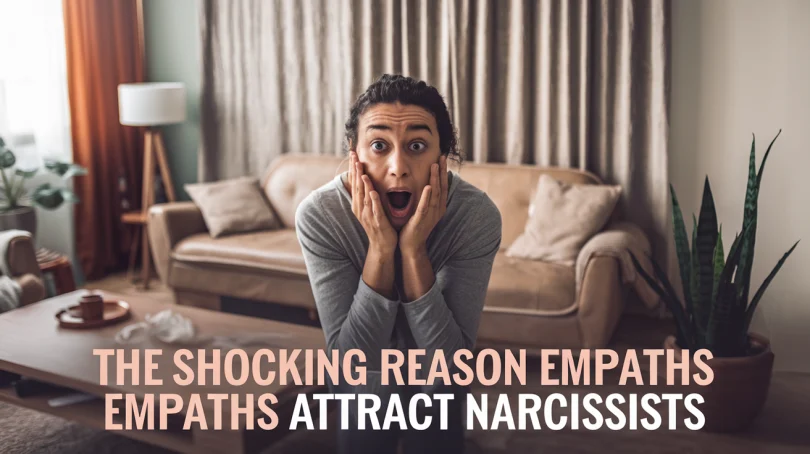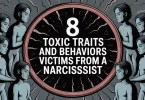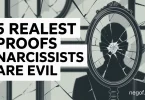If like attracts like, why is it that empaths tend to attract narcissists? This doesn’t make sense, does it? The empath someone who can feel other people’s energies, who is super sensitive to what others think and feel attracts people who don’t feel any regard for those emotions. People who are controlling, manipulative, and self-centered. Why would empaths attract such individuals when they are nothing alike?
Well, very often, what happens is that we attract into our lives that which is equal in vibration even if that vibration is equal in its opposite. Think of it this way: Why does someone who over-gives attract people who overtake? If like attracts like, wouldn’t the over-giver attract other people who are constantly overgiving to them? This makes no sense if the universe operates on the principle that like attracts like.
The Energy Dynamics Between Givers and Takers
Overgivers would then attract people who are always trying to over-give to them, right? Well, no that’s not how it works. The way it works is that we attract that which is equal to our vibration, even if it is in the opposite form, to show us a lesson or help us understand the disowned parts of ourselves.
Related Topics:
What Happens When An Empath Leaves A Narcissist
10 Hidden Motives Why Narcissists Pretend to Be Nice
Here Are Easy Steps To Get Revenge On A Narcissist
10 Interesting Facts About The INFJ Personality Type
Why Do Narcissists Always Want to Hurt Your Feelings?
Interesting, isn’t it? Think about this: People who have no problem taking often have a certain level of entitlement or ownership, believing they deserve what they take even if it’s in a grandiose way. On the other side, the person who feels not good enough, not worthy, and doesn’t even feel like they deserve to ask for something represents the opposite energy. But could it be that this person, who probably triggers you deeply, actually has a lesson for you? Could they be showing you something that, if you learn and integrate it, could transform your life?
What “Like Attracts Like” Really Means
I experienced this myself a couple of years ago. I had a friend come over, and in my fridge here in Sedona, I have a bunch of drinks and beverages kombucha, different types of sparkling water, and other fancy-looking beverages. I splurged on this fancy fridge when I first started becoming successful on YouTube. I was proud of it, and it looked cool.
This friend would grab a kombucha or something out of the fridge, take a couple of sips, and then put it somewhere. An hour later, they’d grab another drink, even though the first one was still three-quarters full. In my mind, I’m thinking, “These are $4 kombuchas each!” Sure, I could be in abundance, but there was also a part of me that felt, “I wouldn’t go over to someone’s house and do that.” I’d be walking on eggshells, asking, “Can I please have a drink?” Then I’d drink the whole thing, throw it away, and even do the dishes if I used any.
But this friend would just take a drink, leave it, forget about it, and do it again and again. Now, I’m not saying the answer is to be completely unaware and dirty up people’s houses. However, what if your breakthrough was noticing that this behavior triggers you? Why does this entitlement bother you? What if there’s a part of you that wishes you could just do that? Wouldn’t it be cool if you could be that carefree?
Aaron’s Kombucha Story: Lessons in Self-Worth
There’s a certain level of pride around awareness because there’s also an attunement to how other people think and feel. I don’t want people to think I’m entitled or a burden. I don’t want people to think I’m mindlessly draining their fridge or taking advantage of their resources. But what I realized is that there’s a disowned part of myself that was afraid to do that.
So, what did I do the next day? I went to a friend’s house and started taking little sips out of drinks, leaving them here and there. By the end of it, I had gone through a whole 24-pack just kidding! I didn’t do that. Can you imagine? My breakthrough was just drinking a little sip and leaving cans everywhere. No, I’m not that sloppy. But in essence, there’s something to learn here. There was a part of myself I could begin to integrate.
As I became aware of this pattern, I started tuning into myself more. If I was at someone’s house and wanted something, I’d ask for it. I’d be respectful, but I realized I could ask more. I could begin to tune into the energy of feeling worthy.
Why Over-Givers Struggle to Receive
The goal of this whole discussion is to be more in the middle than on the extremes. Think about this: It’s a one-on-one reflection. Empaths super sensitive to other people’s emotions and hyper-tuned to others are on the extreme side of the spectrum, opposite the narcissist, who doesn’t feel anyone’s energies and manipulates and controls reality.
Let me also point out something people don’t like to hear: Empaths, people who can feel other people’s energies, get something out of a narcissist’s approval. They feel validated like someone else is approving of them. Because narcissists are hard to please, empaths get a payoff from their approval. Interestingly, it’s also a form of manipulation. Instead of taking and demanding, the empath says, “I’m going to give, and then I’m going to get.”
People who over-give are also selfish. They give to feel validated, to feel connected, or to create codependency. They give to say, “I can fix you; you’re never going to leave.” This is why it’s so important to become aware of the hidden motivations inside of you. That awareness is what you can begin to heal, and it will completely transform your life from the inside out.
The Hidden Motivation Behind Over-Giving
Empaths and narcissists have the same core wound: They both feel unworthy. The narcissist looks like they feel worthy because they act entitled and deserving. They control reality because, by influencing others, they meet their own inner needs. They need to control because they don’t feel safe or worthy. That’s their mechanism.
On the other hand, the empath feels unworthy and not good enough. They think, “If I give, I can compensate for the deficit.” So, both feel unworthy, but they express it in opposite ways. They share the same core wound a form of abandonment wound.
Healing Through Self-Acceptance
Overgivers often feel guilty about receiving. They’re horrible at receiving, even compliments. Try complimenting an over-giver, and they’ll deflect it. I’ve gotten better at this over time, but back in the day, if someone said, “Aaron, I love your videos; they changed my life,” I’d respond, “You changed your life. You did it.” I couldn’t accept the compliment. Even now, I think it’s true that the person changed their own life, but if I’m not able to let that compliment land, it’s like a deflection. It probably doesn’t even feel good for the person giving the compliment.
Have you ever complimented someone, and they just couldn’t take it? Maybe that was you. Someone says, “You look nice,” and you respond, “You look great too!” You quickly pass it back to balance the field because you don’t want to receive too much. You don’t want to feel guilty about receiving it. But for the narcissist, receiving is easy because it’s their default mechanism to control. For the empath, giving is their default mechanism of control. This is why they attract each other.
Attracting Healthy Relationships
The key is to recognize that there’s something to learn here. Instead of seeing yourself as an over-giver or an overtaker, focus on sharing. You don’t have to over-share. Sometimes people over-share because it’s a survival mechanism. If they didn’t always have something to say, they’d get in trouble with their parents, so they keep talking. Or they share dark, vulnerable things to feel connected.
I used to do this. I’d meet people and slowly get into deep conversations about why people are the way they are, their childhoods, and what shaped them. I’d share my own dark experiences to help people open up, so I could learn more about them. It was almost like vulnerability became a means for connection, which is also a form of manipulation.
I had to become aware that I’m good the way I am. I don’t need people to see the dark stuff I went through to feel connected. I don’t need to over-share or over-give to be worthy. I’m worthy just for being me. I’m good enough the way I am. I don’t need to prove it to others.
Why It’s Time to Stop Over-Giving
I’ve had to let go of the pattern of feeling like I need to prove my worth by being successful, making money, or helping others. For a long time, that drove me. Growing my YouTube channel, and becoming more successful I’ve had to realize that I don’t need to over-give or abandon myself to do this. I can stand in my power without feeling guilty.
I ran a live event recently in LA, and someone mentioned that they were surprised the event was only $97 for two full days. I realized that I have a tendency to undercharge because I want more people to be there. But I also realized that I don’t need to over-give. I can charge what I’m worth and still provide value.
The fear is that if you lean into your power, you’ll become like the narcissist entitled and controlling. But that’s not true. You can lean into your power without going to the extreme. You can be unapologetically yourself without needing validation from others.







Leave a Comment